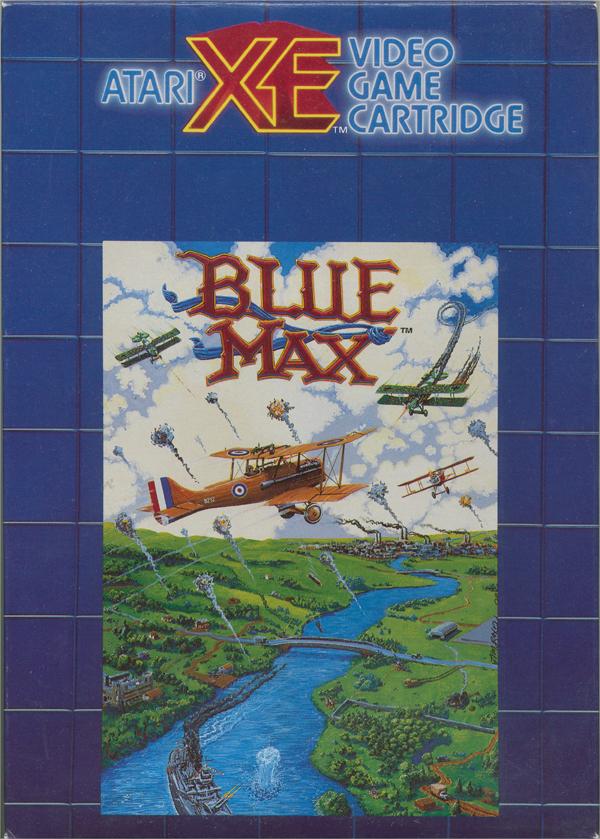| Daten |
| Vorstellung |
30.05.1987
(Summer CES,  Chicago) Chicago) |
| Veröffentlichung |
12/1987 |
| Vertrieb |

Atari Corporation
1196 Borregas Ave
Sunnyvale, CA 94086 |
| Entwicklung |

Brøderbund Software, Inc.
500 Redwood Blvd
Novato, CA 94947 |
| Programmierung |
Bob Polin |
| Produktcode |
RX8081 |
| Genre |
Shoot'em up! |
| Medium |
Steckmodul |
| Steuerung |
Joystick, Tastatur |
| Spieler |
1 |
| Wertung |
★★★★★ |
| min. Arbeitsspeicher |
32 kB |
| Boxtext |
The famous flying ace of World War I
It's June 1915. World War I is raging. The Allies are trying to hold onto Europe ad the Royal Air Force is a key weapon launched against the Axis powers.
While flying a reconnaissance mission, Max Chatsworth sees his entire squadron cut down by the enemy. He vows to avenge the death of his comrades and shoots down 20 enemy planes within the following month. This daring feat makes him one of the greatest fighter pilots in history!
Relive Chatsworth's exploits as he flies over wartorn Europe. You are the "Blue Max" of the R.A.F., in command of a biplane fighter bomber.
Enemy fighters dive and attack, machine guns are chattering. From the ground, guns mounted on tanks and ships fire salvo after salvo. Your mission is to bomb the enemy's airfield and bridges, and destroy as many enemy planes as possible.
To earn your reputation, you must make a final assault on three specially marked targets along the river. You have only one aircraft and limited fuel.
Good luck, Ace. For crown and glory!
|
| Trivia |
Das Spiel erschien bereits 1983 bei Synapse Software auf Kassette und Diskette für die 8-Bit-Systeme.
Das im Spiel verwendete Flugzeug ist ein Sopwith Camel Doppeldecker-Kampfflieger, der zwischen 1916 und 1920 verwendet und vom Royal Flying Corps, dem Royal Naval Air Service und der Royal Air Force im Ersten Weltkrieg vor allem an der Westfront eingesetzt wurde.
Das Spiel beginnt, sobald Rule, Britannia! ertönt. Das Stück stammt aus dem gleichnamigen Gedicht des britischen Dichters James Thomson aus dem Jahr 1740, die Musik dazu wurde im gleichen Jahr vom Komponisten Thomas Arne verfasst. Bis heute ist das Stück stark mit den britischen Streitkräften verbunden.
|
|


|





